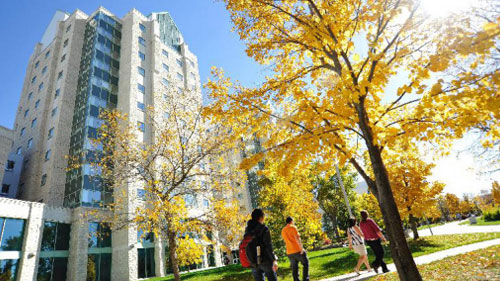University of Regina
High-Energy Campus Life Requires High-Reliability Wi-Fi

The University of Regina is a comprehensive university located in Regina, the provincial capital of Saskatchewan in western Canada. Serving more than 15,000 undergraduate and graduate students, the University of Regina has a three-part mission of teaching, research and service to community. The University’s Information Services (IS) department has a supporting strategy: to create a world-class information technology infrastructure.
The strategy was flagging in one particular area: wireless. “Many academic institutions struggle with Wi-Fi. We were in the same situation. I would hear concerns daily about the poor performance of our former Wi-Fi network,” says Art Exner, Associate Vice-President (Information Services) at University of Regina. “We weren’t planning to overhaul the whole network, but there were some problem areas that we absolutely had to address.”
First was the popular campus food court, a favorite meeting place for students—lots and lots of students. It was known for great food but awful Wi-Fi. The concentration of students on their mobile devices was a high-density nightmare for the existing network. “It was almost unusable from a reliability standpoint,” says Drew Baldock, Communications Support Supervisor. “We received daily student complaints about dropped connections or an inability to connect at all.”
Requirements
- Unreliable Wi-Fi in high-density areas, including the main food court and large lecture halls, generated daily complaints from students and faculty
- The Wi-Fi network required a lot of tuning to support community events on campus
- Even upgrading to the latest AP technology didn’t solve any of the reliability problems
Solutions
- Approximately 1,100 indoor and outdoor RUCKUS® access points
- SmartCell Gateway wireless controllers
- SmartCell Insight reporting and predictive analytics
Benefits
- Student and faculty complaints have dropped from at least a dozen a week to less than a dozen a semester, and most of those are user errors
- RUCKUS access points provided instant reliability over previous Wi-Fi in high-density, high-interference and outdoor environments
- The University now hosts large events (2,000+ people) without making any network adjustments
- The entire Wi-Fi network is managed by two people, who spend a minimum amount of time supporting the highly reliable Ruckus network




